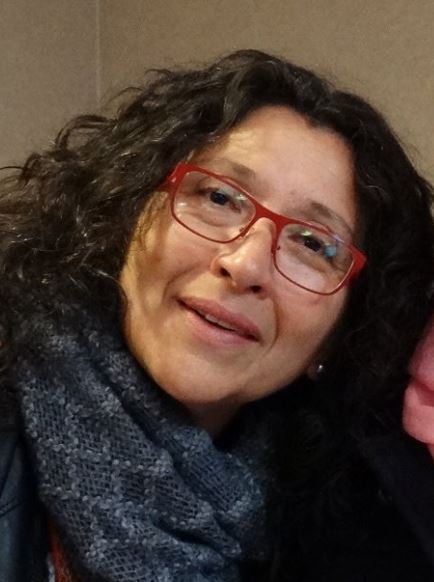- Tags (3)
PSI at UNCSW69 Advancing Gender Justice through Public Services and Rebuilding the Social Organisation of Care

PSI took an active role at this year’s 69th UN Commission on the Status of Women (UNCSW69). With a strong presence across all events, our delegation highlighted the importance of public care systems, workers' rights, and gender equality.

Verónica Montúfar
Throughout the two weeks of the event, PSI's delegation of 20 trade union women leaders from all regions pushed PSI's key priorities in official sessions, side events, and civil society actions.
Key priorities
Care as a human right and public good
A central theme of PSI’s engagement was the need to rebuild the social organisation of care. Through numerous events, PSI representatives emphasised care as a public good, advocating for integrated care systems that are publicly funded, universally accessible, and fairly remunerated.
Events included:
"The Human Right to Care in the Beijing +30 Global Commitments" – Co-hosted by PSI, with PSI General Secretary Daniel Bertossa
Events hosted by the UK Government, with Christina McAnea (UNISON, UK) speaking on women’s economic empowerment.
PSI’s co-sponsorship of events on feminist well-being economies, migrant women’s rights, and a Care-centered Just Transitions.
Read the reports
Taking Action
PSI supported two significant rallies:
No Backlash Against Women's Rights (12 March) – Organised by the Women in International Migration Network, of which PSI is part, PSI stood alongside 40+ groups defending women’s and gender-diverse rights globally. Christina McAnea, representing PSI, expressed solidarity with public sector workers in the US who are under attack including public services.
Defending Public Services and Workers (15 March) – US Unions and public service advocates called for a protest in response to cuts by the US administration. The protest brought together major PSI unions in the country - SEIU, NNU, and PEF, joined by the PSI delegation and other union representatives in a show of international solidarity.
Also see
On March 15, as part of UNCSW activities, thousands of workers demonstrated in New York City against the Trump administration's cuts to public services. The protest brought together major US PSI unions - SEIU, NNU and PEF - along with PSI union representatives from Brazil, Ecuador and Chile, who marched in a show of international solidarity.

Influence in Negotiations
This year, UNCSW69 featured three phases of negotiations:
Political Declaration on the occasion of the thirtieth anniversary of the Fourth World Conference on Women (Before CSW, 3 Feb- 9 March)
Multiyear Programme of Action 2026-2029 (During CSW, 10 -20 March)
CSW Revitalisation (After CSW, 20 March – September UNGA)
PSI made substantial contributions to the negotiation processes during UNCSW69. PSI also had representatives included in official government delegations from Chile and Brazil, gaining strategic access to negotiation spaces. PSI was notably recognised by the Government of Chile for its valuable input.
Read more
On the Political Declaration from the Zero Draft to the final negotiated document, there are both wins and challenges concerning PSI’s key priorities.
PSI advocated for:
Decent work and labour rights for women.
Robust, public services and public social protection systems.
Progressive tax reforms and increased public investment in care.
The right of care workers to representation and fair remuneration.
While PSI’s call for public services to remain in public hands faced resistance, the final documents reflected important gains aligned with PSI’s priorities.
As concerns the Multiyear Programme of Action, 2028 will be the year when the CSW will focus on “Recognising and strengthening care and support systems”.
The CSW revitalisation process agreement will be finally adopted during a specific session of the United Nations General Assembly, in September this year. The Global Unions’ are preparing an open statement urging the Member States to:
prioritise accountability, transparency, inclusive participation, and policy coherence
ensure that the revitalisation process is not used as an opportunity to weaken the current mandate of the CSW and undermine commitments and frameworks on gender equality and human rights
have a strong commitment to protecting civil society spaces from growing challenges, including regulatory constraints, opposition from hostile groups with anti-rights perspectives, and risks faced by human rights defenders, including trade unionists
Read more
Despite its ambitious objectives, the document has shortcomings in several crucial areas. Notably, the Declaration lacks explicit guarantees for public care systems and includes problematic references to Public-Private Partnerships (PPPs), which could lead to the commodification of essential services.

Looking Ahead
PSI continues to call for stronger political voice and coalition-building to strengthen our political union and workers' voice for defending public services for women and rebuilding the social organisation of care. There’s a pressing need to counter privatisation narratives with alternative frameworks and evidence-based advocacy.
Upcoming milestones where PSI will continue its efforts include:
2025: The XVI Regional Conference on Women in Latin America and the Caribbean, to be held in Mexico in 2025, will address the theme "Transformations in the Political, Economic, Social, Cultural, and Environmental Spheres to Promote the Care Society and Gender Equality.
2026: the International Labour Conference (ILC) will have a General Discussion on Advancing the transformative agenda for gender equality at work
2027: UNCSW71 will have as a priority theme “Accelerating the achievement of gender equality and the empowerment of all women and girls in the context of the 2030 Agenda for Sustainable Development”. Special attention should be given to SDGs 1, 3, 4, 5, 8, 13, and 17 (the latter including PPPs)
2028: UNCSW72 will have as a priority theme “Recognising and strengthening care and support systems to achieve gender equality and the empowerment of all women and girls”.
PSI’s presence at UNCSW69 reinforced its commitment to social justice, workers’ rights, and gender equality.